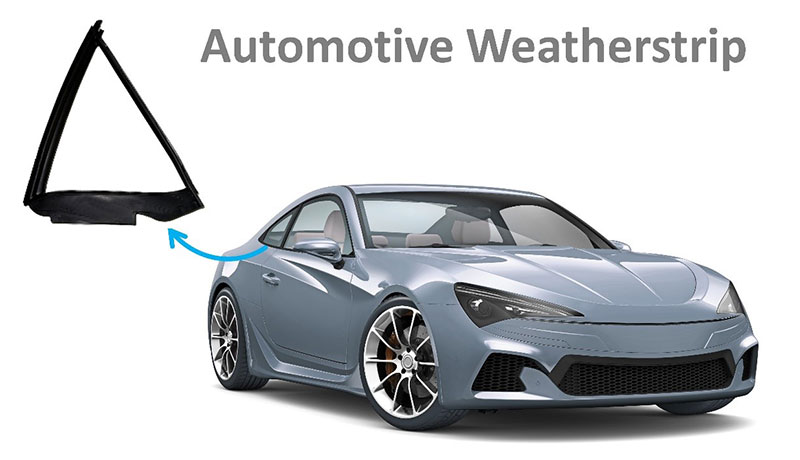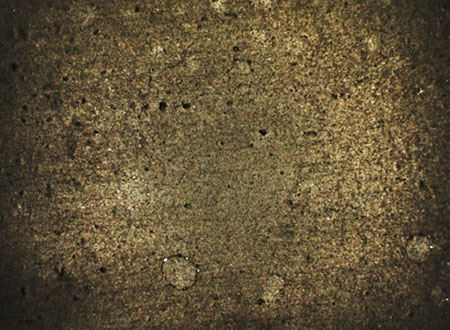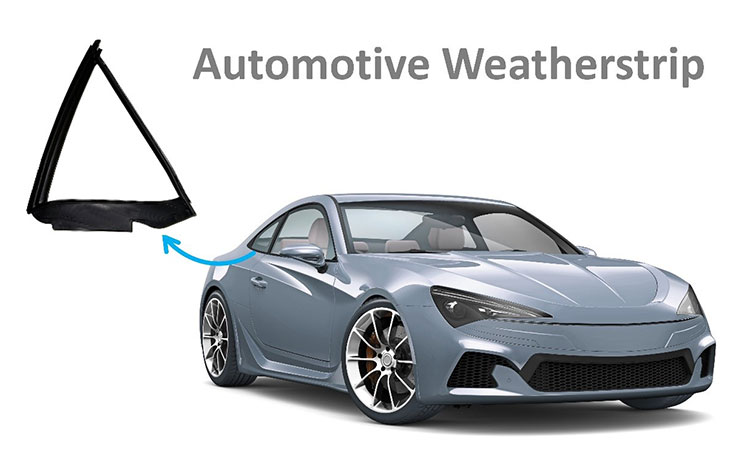Back
Share
TPE Compound for High Performance Automotive Weatherstrip?
Thermoplastic Elastomers (TPEs) have been widely used in the automotive industry for several decades. TPVs are a class of thermoplastic elastomers that combine the processing ease of thermoplastics with the flexibility and elasticity of vulcanized rubber. They are ideal for automotive applications that require high-performance materials with excellent weather resistance, durability, and flexibility. TPVs are commonly used in automotive weatherstrip applications such as door seals, window seals, and trunk seals, where they provide excellent sealing, noise reduction, and vibration damping. TPVs also offer advantages in terms of sustainability and recyclability, making them a preferred material choice for the automotive industry. With continuous advancements in material science, TPVs are expected to play an increasingly significant role in the automotive market, meeting the demands of modern automotive designs and the increasing requirements for safety, comfort, and sustainability.

TPE/TPV Advantages for Automotive Weartherstrip
-
TPE and TPV materials are commonly used in automotive weatherstrip applications due to their excellent weather resistance and flexibility.
-
TPV materials are based on EPDM and are typically used for applications such as window seals and interior parts.
-
Shore 60 A hardness is suitable for weatherstrip applications, as it provides good sealing and flexibility.
-
TPE and TPV materials can be easily processed using plastic injection and extrusion molding.
-
These materials meet automotive interior odor requirements and have good mechanical properties and chemical resistance.
-
TPE and TPV materials offer a soft touch feel and can be customized to meet specific performance requirements, such as scratch resistance and weathering resistance.
-
TPE and TPV materials are recyclable, making them a sustainable option for automotive applications.
-
To ensure durability and weather resistance, these materials are typically tested in QUV weather chambers using ASTM G154 standards.
Everlon Recommendation: ES-60BL
The performance from ES-60BL for weatherstrip application:
Accelerating Aging Test Conditions:
| Test Standard | ASTM G154 |
| Test Equipment | Accelerated Weathering Tester QUV |
| Light source | Light 340 |
| Test step1 | UV 60℃ 0.55W/M2 20hrs |
| Test step2 | Spray water cycle COND 50℃ 4hrs |
Mechanical Values
| ITEM | UNIT | Before | After 504 hrs |
| Hardness | Shore A | 60 | 60 |
| Specific gravity | - | 0.960 | 0.970 |
| Tensile strength | ㎏/㎝2 | 52 | 50.3 |
| Elongation at break | % | 495 | 458 |
| Tear strength | ㎏/㎝ | 31.6 | 34.1 |
| Weather fastness |
Delta E Gray Scale |
- |
0.17 5 |
| Visual Evaluation | - | - | No crack |
Microscope 25 magnification enlarge photos

Before

After 504 hrs
Overall, TPE and TPV materials offer a range of advantages for automotive weatherstrip applications, including weather resistance, flexibility, customization, and sustainability. At Everlon, we will continue to innovate and develop sustainable products that meet the needs of our customers and the world. To customize the TPE compound for your unique weatherstrip design, please contact with Everlon Team for details!





